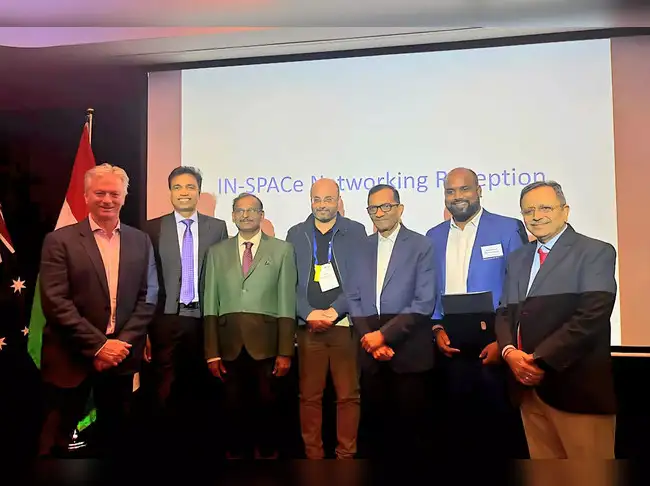Chennai-based OrbitAID Aerospace is set to make history with India’s first in-orbit satellite refueling demonstration in late 2026, following a landmark partnership under the Indo-Australian Space MAITRI grant. The mission, supported by the Commonwealth, will deploy OrbitAID’s patent-pending Standard Interface for Docking and Refuelling Port (SIDRP)—a technology poised to revolutionize satellite operations by enabling refueling in space, extending mission lifespans, and reducing orbital debris.
Founded in 2021 by Sakthikumar R, Nikhil Balasubramanian, and Mano Balaji K, OrbitAID aims to establish itself as a leader in sustainable space logistics, positioning India at the forefront of the rapidly growing global space economy.

Mission Overview: A Leap in Sustainable Space Operations
Key Objectives
- Demonstrate In-Orbit Refueling: Validate SIDRP technology aboard Space Machines Company’s Optimus satellite
- Standardize Satellite Interfaces: Promote universal refueling and docking mechanisms
- Reduce Space Debris: Mitigate dead satellite accumulation through life extension
Technical Specifications
- SIDRP System: Combines fill/drain valves with autonomous docking mechanisms
- Fuel Compatibility: Supports monopropellants, bipropellants, and electric propulsion systems
- Launch Vehicle: ISRO’s Small Satellite Launch Vehicle (SSLV)
- Launch Timeline: Late 2026
Strategic Importance of the MAITRI Grant
About the MAITRI Program
OrbitAID’s Role
- Lead the commercial ground fueling campaign for the mission
- Establish an end-to-end propellant supply chain—from Earth-based depots to orbital tankers
- Achieve Technology Readiness Level (TRL) 9 post-demonstration, up from TRL 7 in ground tests
Technology Impact: Pioneering a New Era in Space Logistics
Solving Critical Challenges
- Satellite Longevity: Refueling can extend operational life by 2–5 years
- Cost Efficiency: Reduces need for expensive replacement missions
- Debris Mitigation: Prevents defunct satellites from cluttering orbit
- Mission Flexibility: Enables orbital adjustments and mission extensions
Future Applications
- Satellite Repair and Upgrades
- Orbital Debris Removal
- Deep-Space Mission Support
- Lunar and Martian Logistics
Business Model and Growth Strategy
Revenue Streams
- Refueling Services: Subscription or per-use models for satellite operators
- Technology Licensing: SIDRP patents and interface standards
- Mission Partnerships: Joint ventures with global space agencies and private firms
Expansion Plans
- Scale team from 30 to 45 professionals
- Enhance Bengaluru R&D facility (opened May 2024)
- Pursue international regulatory approvals for refueling operations
Funding and Financial Backing
OrbitAID has raised a total of $2.04 million, including:
- $1.5 million pre-seed round (Jan 2025) led by Unicorn India Ventures and the Tamil Nadu government
- Grants from MSME and IISc for docking demonstration projects
Market Opportunity and Global Context
Growing Space Economy
- Global space market projected to reach $500 billion by 2030
- 100+ satellite launches targeted by India annually by 2030
- Rising demand for satellite life extension and sustainability services
Competitive Landscape
- U.S. companies like Orbit Fab and Astroscale developing similar technologies
- European Space Agency promoting refueling standards
- OrbitAID’s differentiator: Cost-effective solutions tailored for emerging markets
Alignment with National and Global Goals
Atmanirbhar Bharat
- Supports India’s vision for self-reliance in space technology
- Strengthens domestic R&D and manufacturing capabilities
Sustainable Space Goals
- Contributes to UN Sustainability Goals through debris reduction
- Aligns with ISO standards for space sustainability
Challenges and Risk Mitigation
Technical Risks
- Docking Precision: Autonomous systems must achieve millimeter-level accuracy
- Fuel Transfer Safety: Zero-gravity fluid dynamics present unique challenges
Mitigation Strategies
- Rigorous ground and in-orbit testing
- Partnerships with established space agencies for validation
Regulatory Hurdles
- International approvals for fuel transfer in space
- Space traffic management and collision avoidance protocols
Conclusion: Fueling the Future of Space Exploration
OrbitAID’s 2026 refueling demonstration represents a defining moment for India’s private space industry. By pioneering in-orbit refueling technology, the startup is not only addressing immediate challenges like satellite longevity and space debris but also laying the foundation for a sustainable, scalable space economy.

